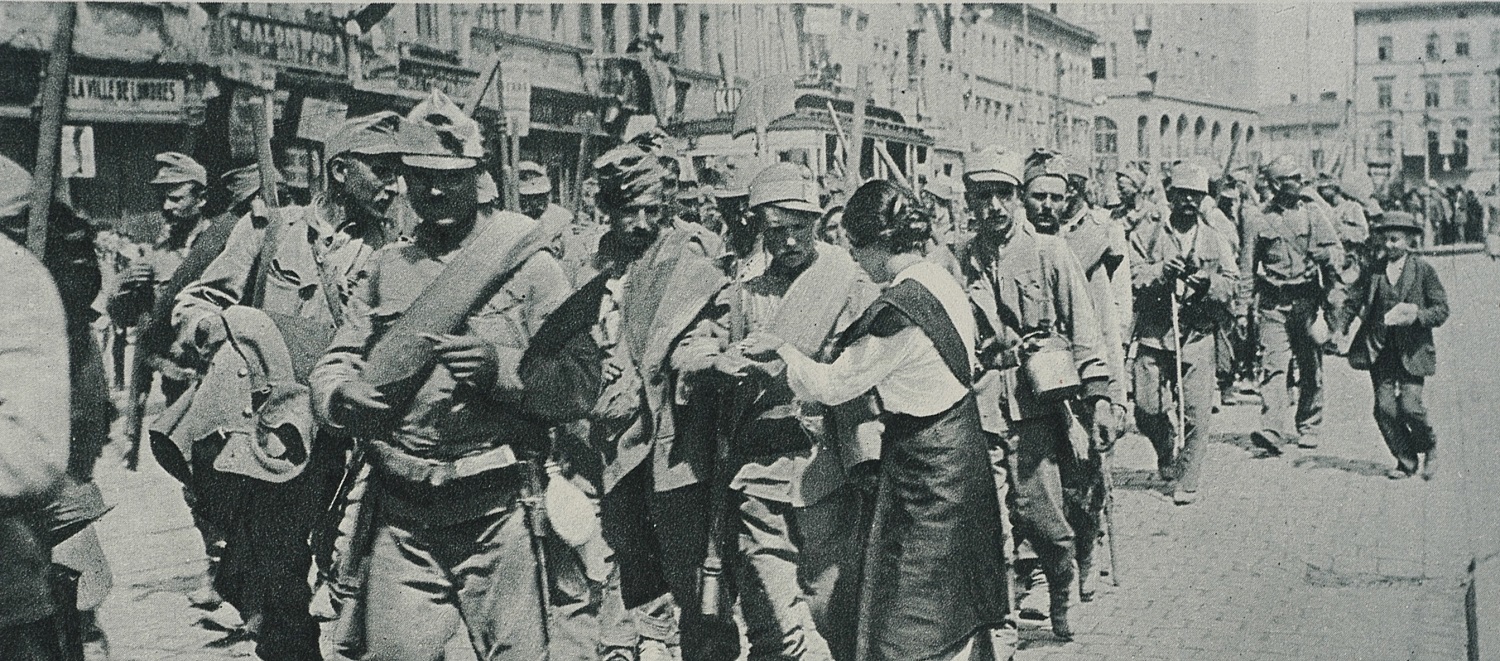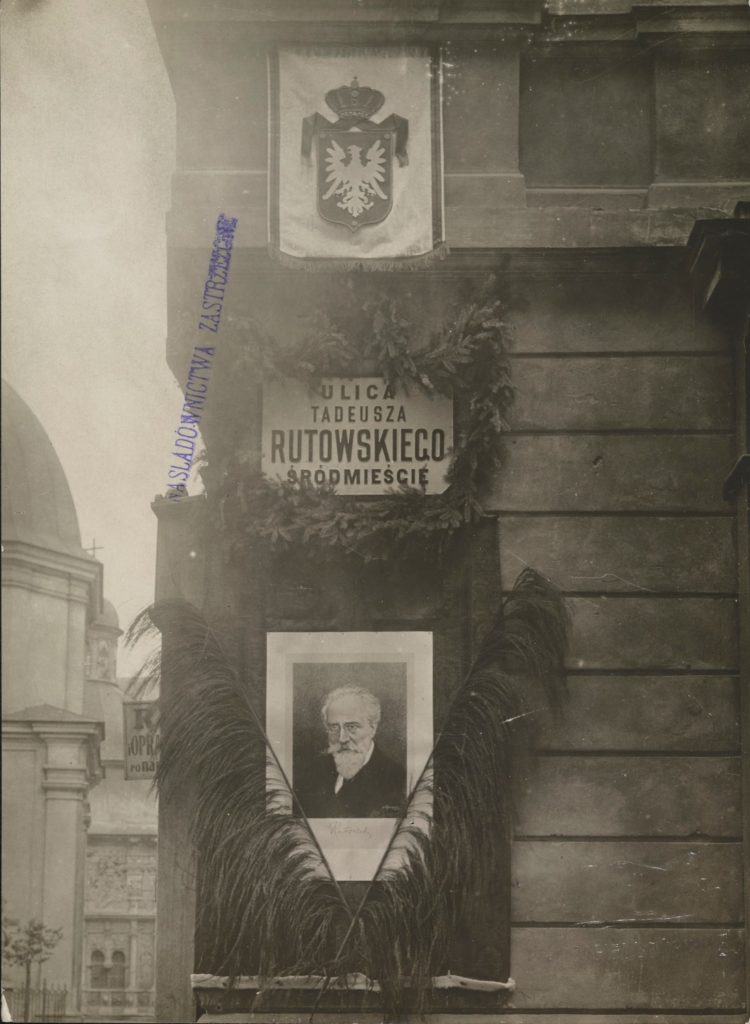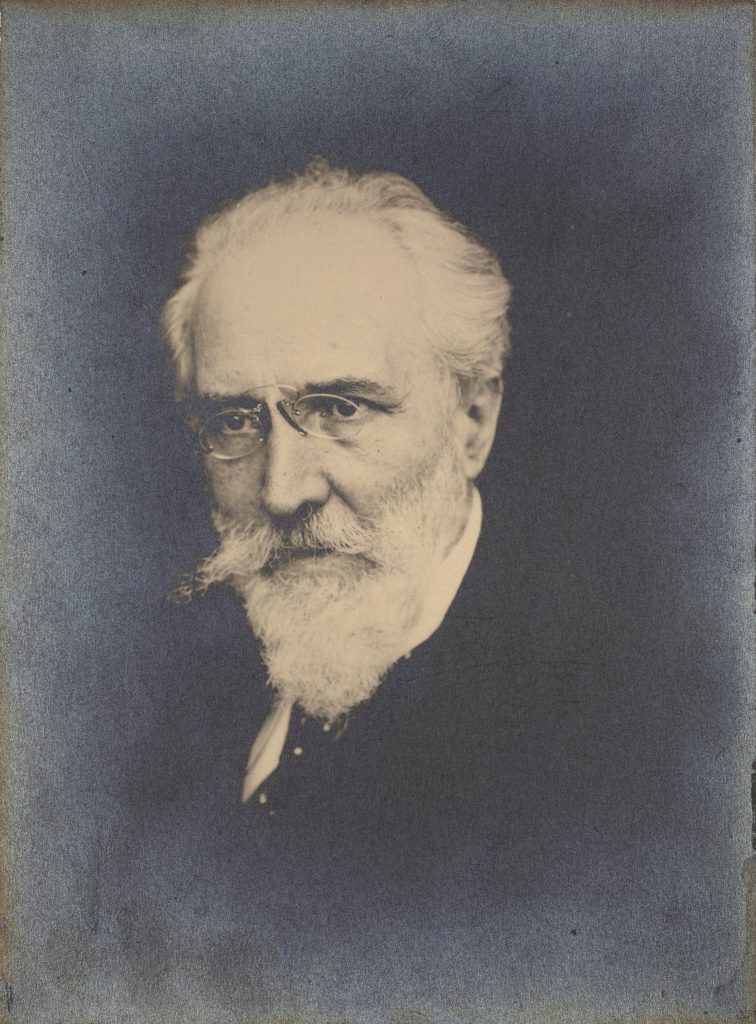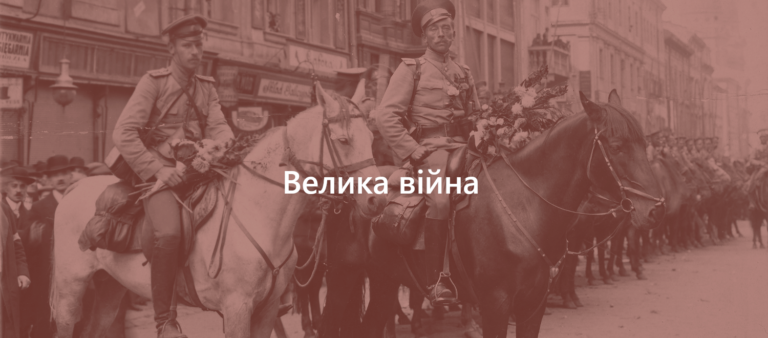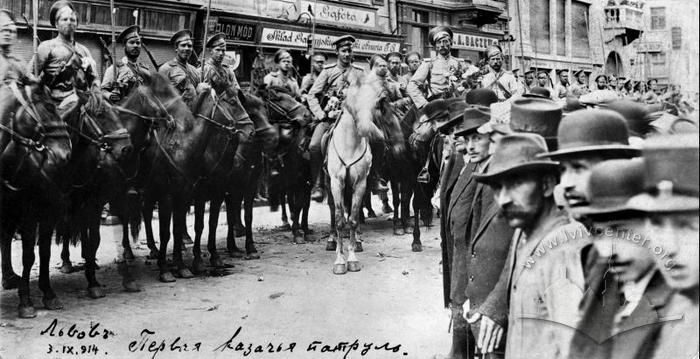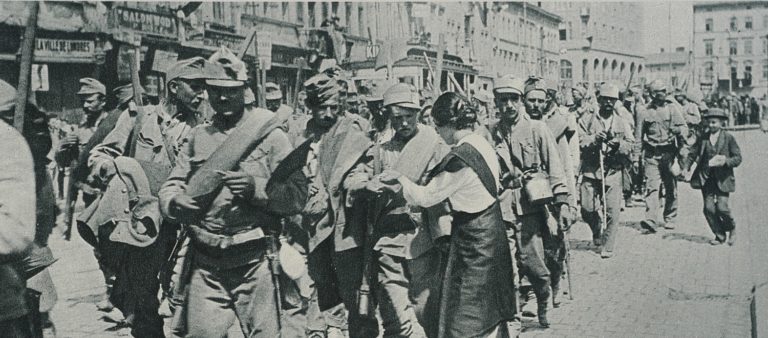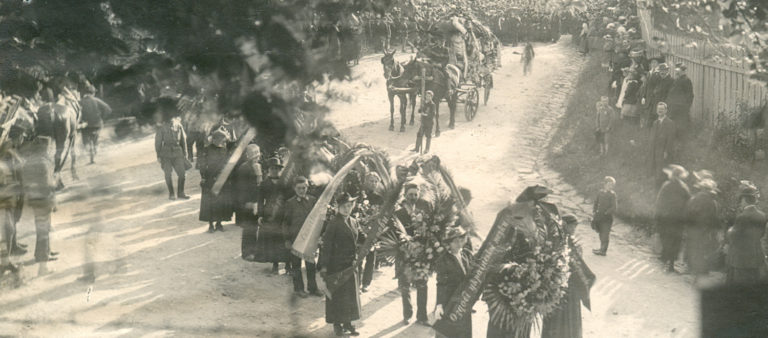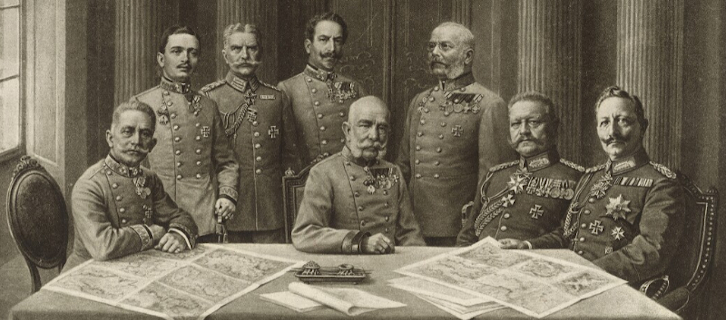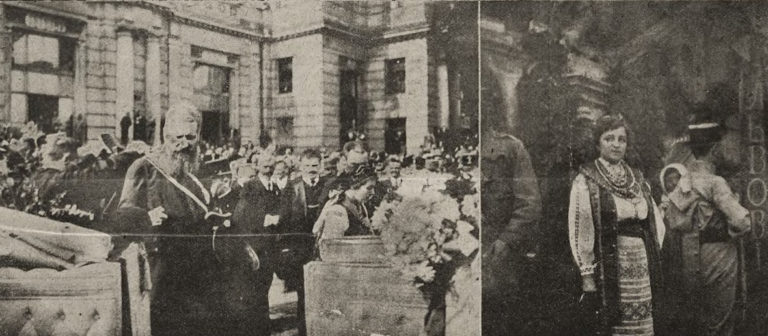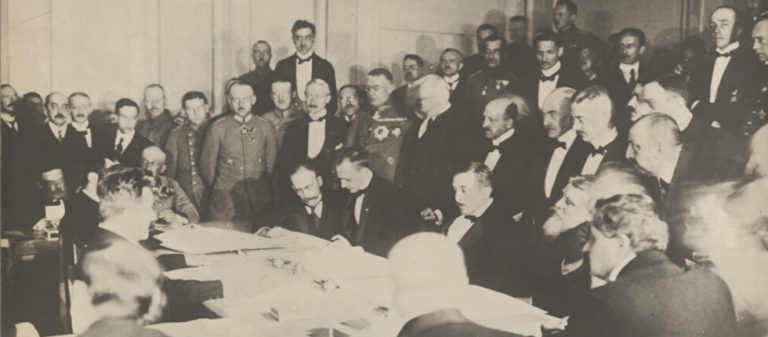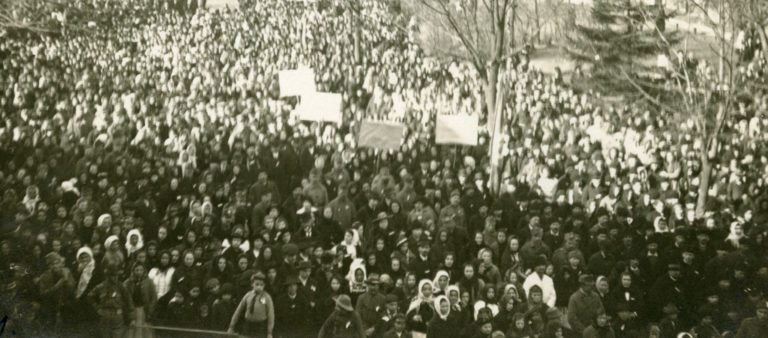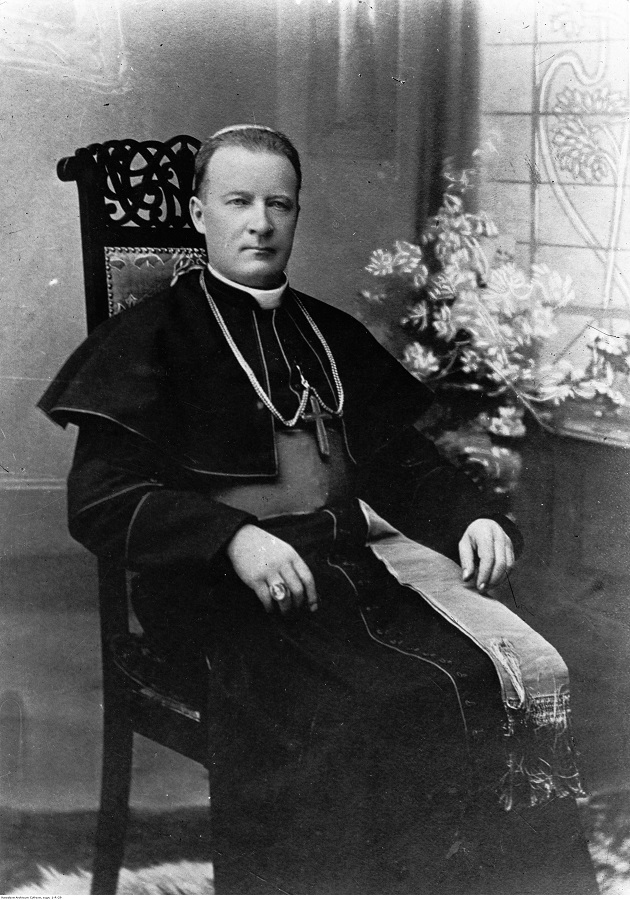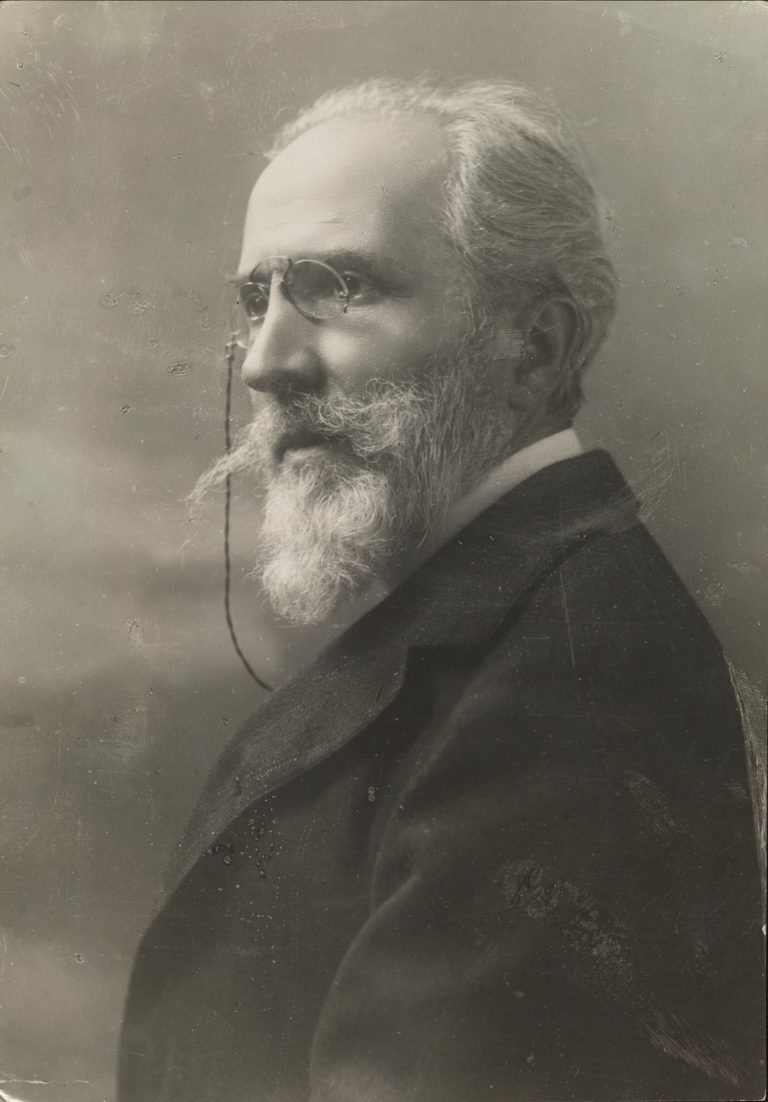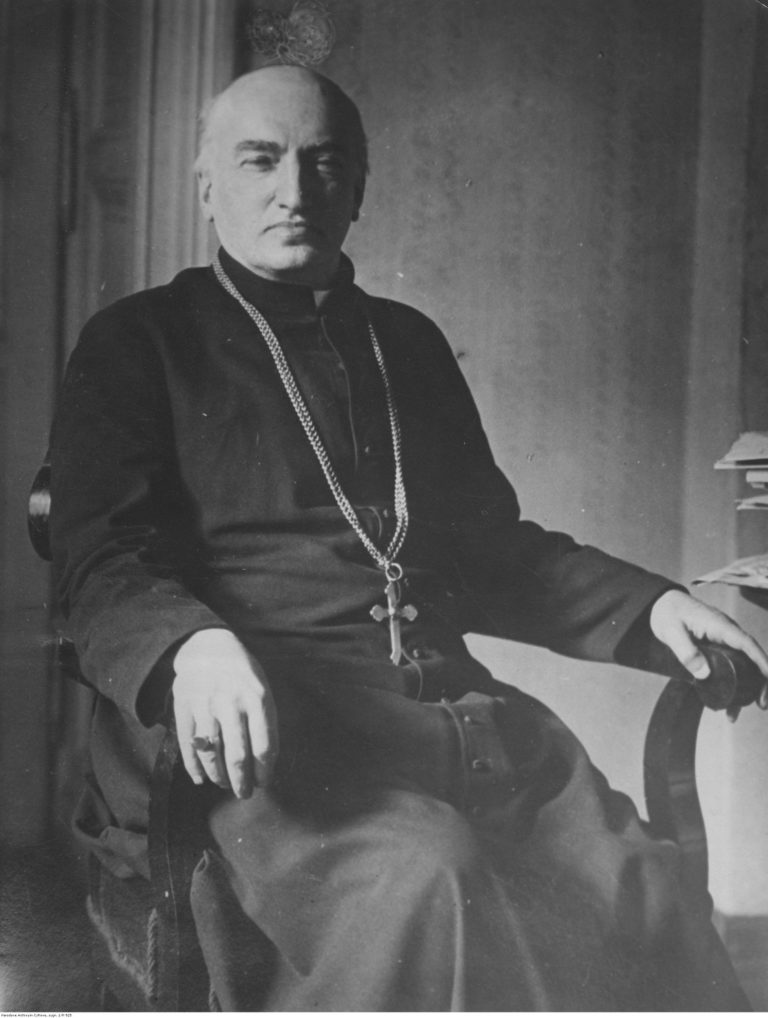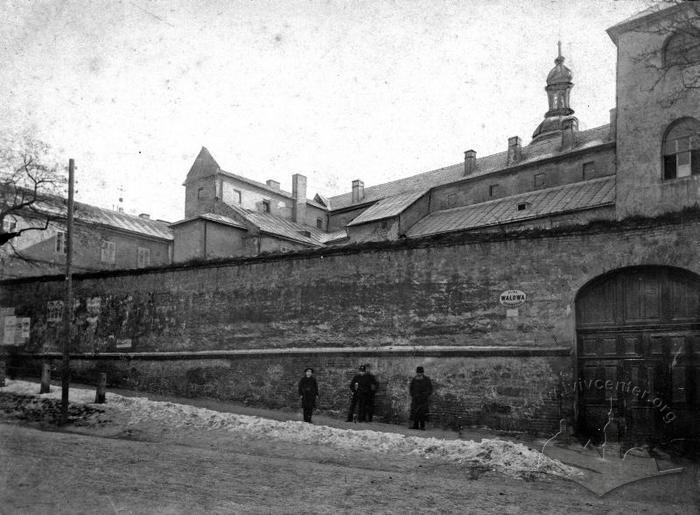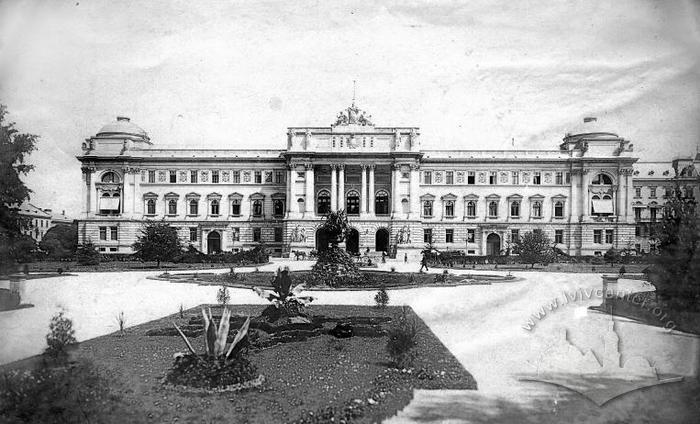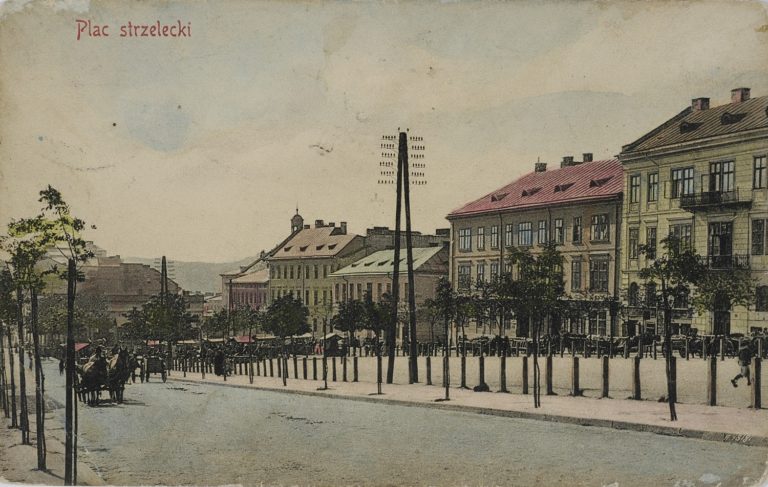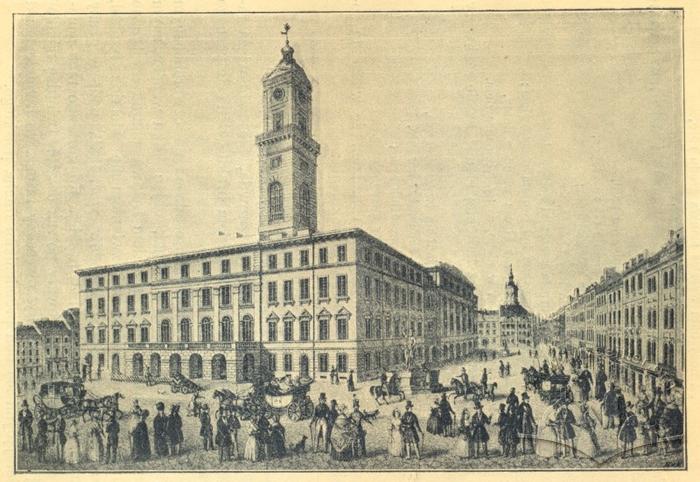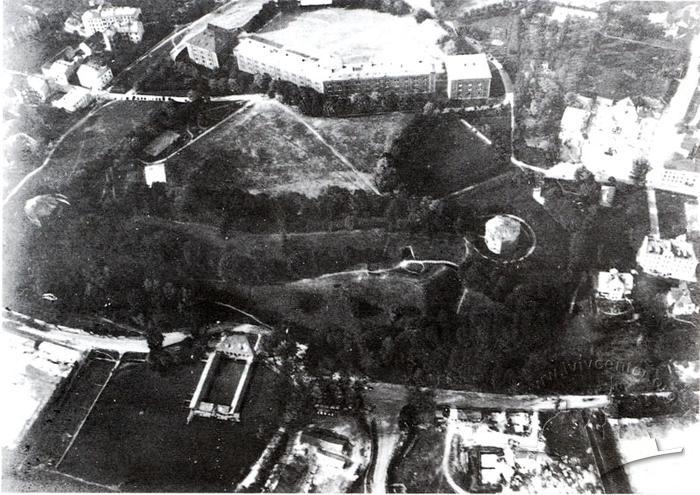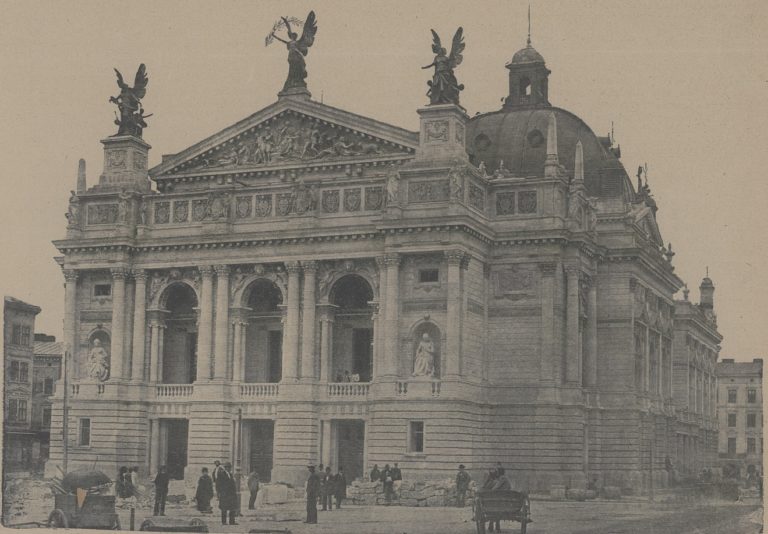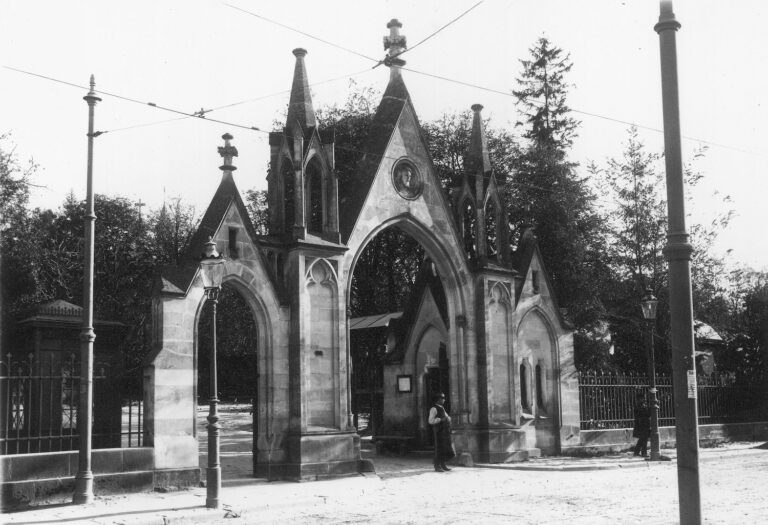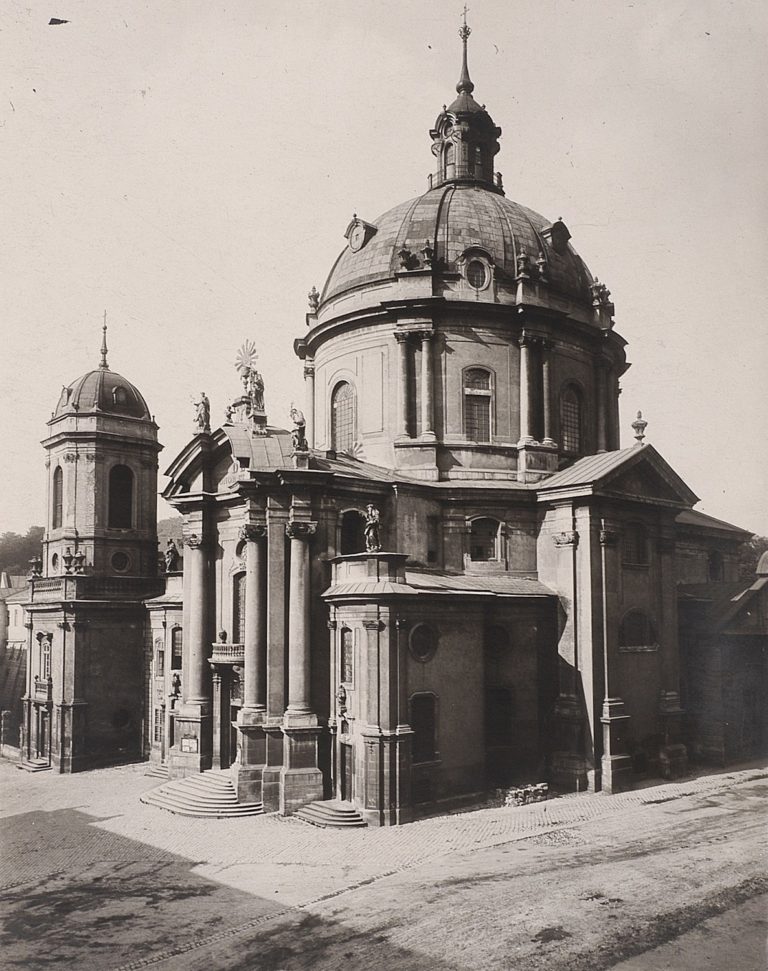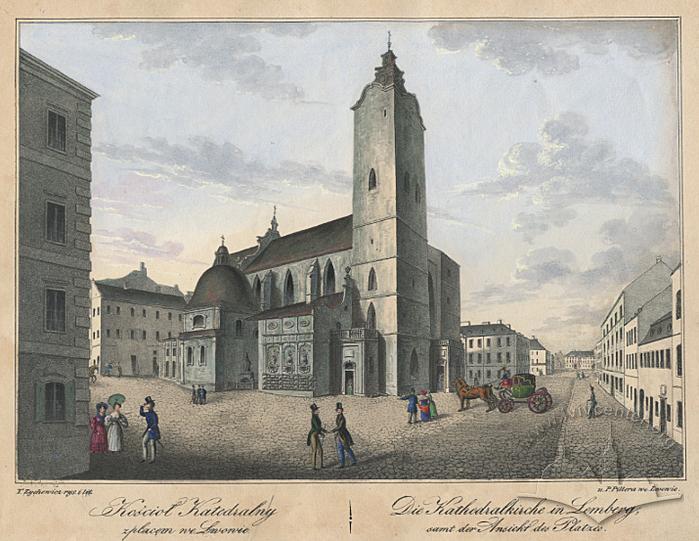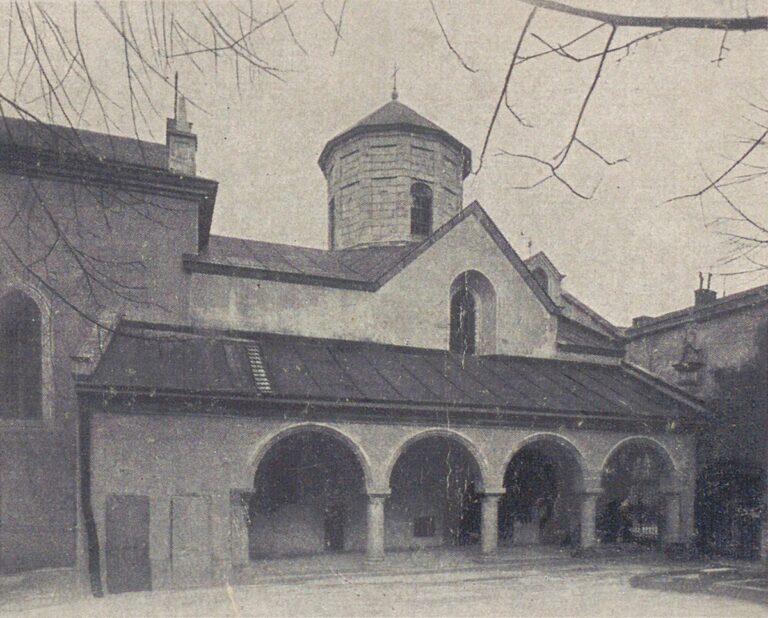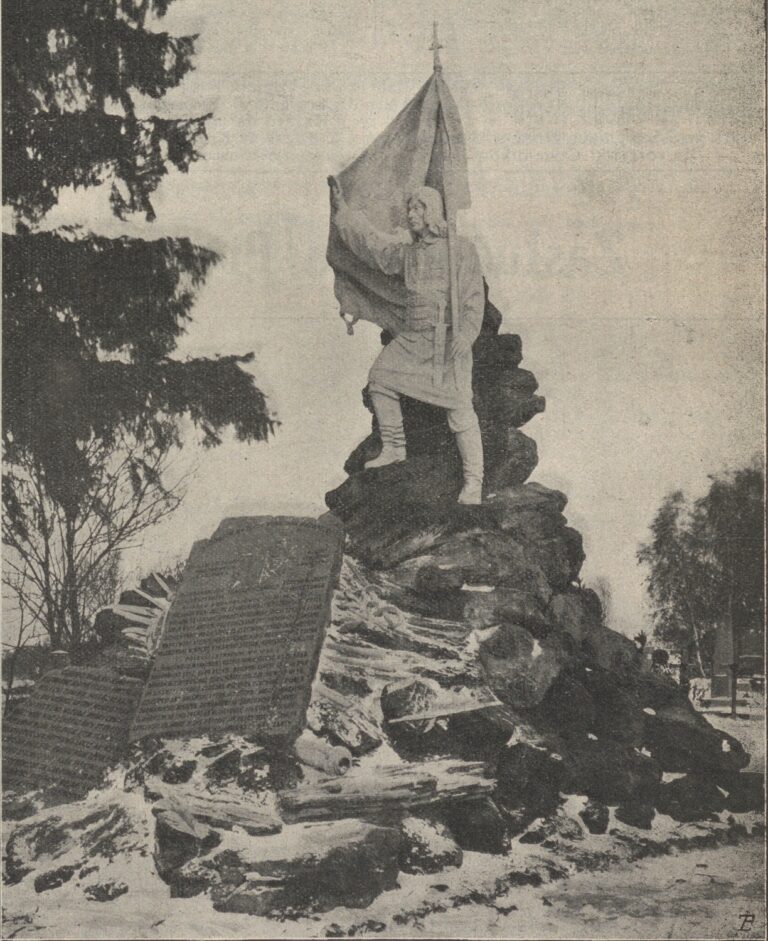After the Russian army left Lviv on June 9, 1915, life did not return to its usual pace in a moment. On the contrary, everyday problems became more and more evident. As early as July, the press started reporting about the cholera epidemic, which, along with the nearby frontline, prevented residents and government officials evacuated at the beginning of the war from returning to Lviv.
After the Austrian government repressed the Russophiles and the Russian occupying authorities repressed the Ukrainophiles, the Ukrainians, including the Greek Catholic Church, were clearly disorganized and weakened. They, like the Jews after the Russian pogrom and regular looting, were not in the mood for demonstrations. The Poles also had suffered; however, taking into account the overall proportion of the population as well as due to the Roman Catholic Church's position being preserved (the Church traditionally played a key role in urban manifestations), they had more opportunities for self-representation.
Religious and imperial holidays remained the main "platforms" for this; besides, the tradition of Polish patriotic "tours" was revived. Although their scale was clearly inferior to the pre-war ones, there were new reasons for celebration.
Actually, it was an attempt to restore usual practices, to make it all the way it was before the war. This is confirmed even by the calendar: key dates for the empire (such as the emperor's name day) and for Polish politicians (such as the November Uprising anniversary) were attempted to be celebrated in the usual manner. However, the general background consisting of epidemics, shortages and the nearby frontline, as well as a smaller number of participants, indicated that there would be no return to the past. New commemorative days, which initially were tried to be incorporated into the existing list of "important dates", reminded of the war as well.
* * *
The first anniversary of the Polish legions
In particular, on August 6, 1915, the first anniversary of the entry of the Polish legions (parts of the Austrian army) into the territory of the Kingdom of Poland (part of the Russian Empire) was celebrated in Lviv. Here, according to the usual scheme, nationalism and loyalty to the Habsburgs were combined as traditional components of Galician politics during the times of autonomy. At the same time, the cult of Józef Piłsudski began to take shape in the Lviv press in full swing. On the morning of August 6, a solemn service "for the victory of Polish weapons" was held in the Bernardine church. There was a representative of the city administration, members of guilds and corporations with respective flags, various associations, schoolchildren, and the public. After the service, patriotic songs were traditionally sung. In the evening, there was a special program at the City Theater, where the women's committee was selling appropriate souvenir medals for charity.
The main celebrations, however, took place in Krakow, which was safer: a monument in the form of a column was erected there, a mass rally was organized for the anniversary of the creation of the Polish Supreme National Committee (an inter-party association that focused on Austria-Hungary and Germany during the First World War); on August 16, a delegation from Lviv also left for Krakow to take part in the celebration.
Emperor Francis Joseph's 85th birthday
On August 18, 1915, the 85th birthday of Emperor Francis Joseph was celebrated in Lviv. On this occasion, the city authorities asked residents to decorate their houses and hang flags until 7 p.m. on the previous day, August 17, as well as to participate in solemn morning services in all the churches of the city.
On the evening of August 17, at 7 p.m., a solemn march through the city streets took place. The participants gathered in front of the Sejm (Diet) building; apart from that, a special team with torches assembled near the fire station on pl. Strzelecki (now Danyla Halytskoho Square) to join the main demonstration in an organized manner later.
Before the march, three military bands played the national anthem in front of the Sejm (whose building housed the military command at the time). After that, three processions with torches and bands took different routes through the central streets. The evening ended with the illumination of the buildings in the city center among which the city hall and a special structure in the City (Jesuit) Park were especially noted.
The August 18 program resembled the usual pre-war traditions as much as possible: between 6 and 7 a.m., military bands played a "wake-up" in the streets, at 9 a.m. solemn services were held in all the city's churches to which members of guilds and organizations arrived in an organized manner with flags and standards. At 1 p.m., there was a reception at the military commandant's headquarters, and at 2 p.m., 21 gun volleys were fired from the Citadel, with a reception arranged for the officers at the restaurant in the Jesuit Park at the same time.
There were also traditional deputations from guilds, societies, and organizations, which, in the absence of the governor in Lviv, pledged their loyalty to the empire to the temporary starosta (territorial administrator) of the city. A usual festive program was also organized at the City Theater at 7 p.m. In that year, charity events that always accompanied the name day of Francis Joseph consisted in military invalids being awarded special allowances, in the city hall again.
In spite of all these positive celebrations and holidays, the situation in the city continued to deteriorate. A cholera epidemic began, so entry to and exit from Lviv was complicated. The authorities tried to limit profiteering and price growth due to "bread cards." Besides, the authorities themselves were quite limited not only financially, but also in terms of personnel. After the evacuation of 1914 and the deportation of the acting president of the city of Lviv, Tadeusz Rutowski, who had been taken hostage by the Russians, the city was managed by a starosta. The governor, later the governor-general, appeared in the city not often, by car and mostly just for one day.
More and more able-bodied men were called up to the army, which was immediately noticeable on the streets of the city, where female waitresses and tram conductors appeared, while vacancies for workers were increasingly mentioned in advertisements.
Since the epidemic was not over and the frontline was not far away (near Sokal and Przemyśl), even in October, there was no talk of returning the evacuees. Added to all this was a shortage of salt, a lack of food and problems with firewood.
Nevertheless, Polish political activists tried not to miss the usual commemorative dates, such as the battle of Vienna and the victory of King Jan Sobieski, although it was far from the earlier mass and pomp. On September 19, 1915, the Roman Catholic and Armenian metropolitans, in the presence of officers and the public, consecrated a new military cemetery near the Lychakiv cemetery. On September 29, on the feast of St. Michael, the patron saint of the city of Lviv, a mass was held in the Bernardine church and a procession was arranged through the central streets.
Emperor's name day
On Sunday, October 3, the eve of Francis Joseph's birthday, several thousand schoolchildren and their teachers gathered on pl. Rynok to pledge their loyalty to the monarchy. On this occasion, the traditional bazaar was cancelled and the tram traffic was restricted. Although there was no original programme — it alI ended with speeches from the city hall balcony and the performance of the national anthem — the event itself was quite crowded, some newspapers reporting 10,000 participants. On the name day itself, October 4, in addition to solemn services in the city's main churches, special events were held in schools.
Remarkably, as it had been during the Russian occupation, Polish activists used official imperial and religious celebrations to advance their agenda. For example, divine services for fallen soldiers or concerts of church music were actually turned into prayers for the victory of Polish weapons. On Sunday, October 3, immediately after the gathering of school youth on the emperor's name day, processions from various churches of Lviv assembled in the Dominican monastery: the month dedicated to the Mother of God was beginning, so four altars were set up on pl. Rynok and traditional rites were conducted for the Corpus Christi holiday, known for its patriotic content. After this month, in November, a series of religious services "for Poland" began in churches.
Commemorative days and honoring Tadeusz Rutowski
From the middle of October, in the assembly rooms of various societies and organizations traditional evenings dedicated to Tadeusz Kościuszko started to be arranged, but no mass events in the streets were held on this occasion.
Instead, the commemorative days of early November were lived in a much more organized manner than usual. On November 1, All Saints' Day, a solemn divine service was held in the Latin Cathedral with a collection of donations for the families of military personnel; in the afternoon, there was a concert of church music and a solemn procession. The following All Souls' Day, November 2, passed in a similar way. Then there were memorial services on November 3, 6, and 8. Regarding the decoration of cemeteries, there were calls that the funds should be donated to the poor, orphans and the disabled, and not only in Lviv, but even in the Kingdom of Poland. Anyway, there were more people and lamps at the cemeteries on November 1, 1915, then the previous year, when the city was occupied by the Russians, and Russian patrols were deployed at the Lychakiv cemetery. In addition, it was now possible to sing patriotic songs and to honor the graves of the January Uprising participants.
In the same period of time, the city decided to honor Tadeusz Rutowski, who had been the President of the city of Lviv during the Russian occupation and had been deported by the Russians as a hostage during the latter's retreat; quite opportunely, his name day was on October 28. In addition to the solemn divine service in the Latin Cathedral, sending of postcards, events in schools, a solemn evening in the City Theater, as well as the renaming of ul. Teatralna as ul. Tadeusza Rutowskiego with the ornamentation and decoration of buildings were organized. Small celebrations were held on November 4 even in kitchens for the needy.
- Перейменування вулиці Театральної на Рутовського / The renaming of Teatralna Street to Rutowski Street
- Тадеуш Рутовський / Tadeusz Rutowski
On November 7, after receiving information about the capture of the city of Niš by Bulgarian troops (Austria's allies), Lviv was decorated with state flags; on November 10, the first funeral of a soldier from the "Polish Legions" took place in Lviv. On this occasion, a lot of people gathered, there was a guard of honour formed by infantrymen of the Austrian army; the deceased was buried at the Lychakiv cemetery.
Anniversary of the November Uprising
On November 29, the anniversary of the November Uprising, traditional "tours" were held in Lviv in an almost pre-war format. On the previous day, Sunday, November 28, at 3 p.m., a rally began at the Lychakiv cemetery — at the site where the participants of the 1831 uprising were buried. On holiday itself, there were solemn services in the Latin and Armenian cathedrals as well as collections of charitable contributions and events in schools and individual neighborhoods of the city; at 7 p.m., there was a festive program in the City Theater. Representatives of the Polish Supreme National Committee were present at all events. At the service in the Latin Cathedral, it is worth noting the almost "pre-war" representation: participants of the January Uprising, representatives of the authorities, professors of the University and Polytechnic, the Riflemen Association, the Gwiazda and Skala associations, guilds, firemen.
Anniversary of Francis Joseph's reign
After all these celebrations, the 67th anniversary of Francis Joseph's reign on December 2 was celebrated more than modestly, limited to a divine service. On the same day, a final information (not a preliminary notice) appeared that evacuees could return to Lviv and several other cities and counties. It seemed that the time when the city was in a war zone was over and, therefore, it would be possible to return to the usual calendar in which Austrian imperial holidays alternated with Polish national holidays, forming the usual double loyalty. However, the events of the following months, namely the aggravation of disputes in the triangle between Vienna, Polish and Ukrainian politicians, demonstrated that there would be no return to the pre-war agenda.
